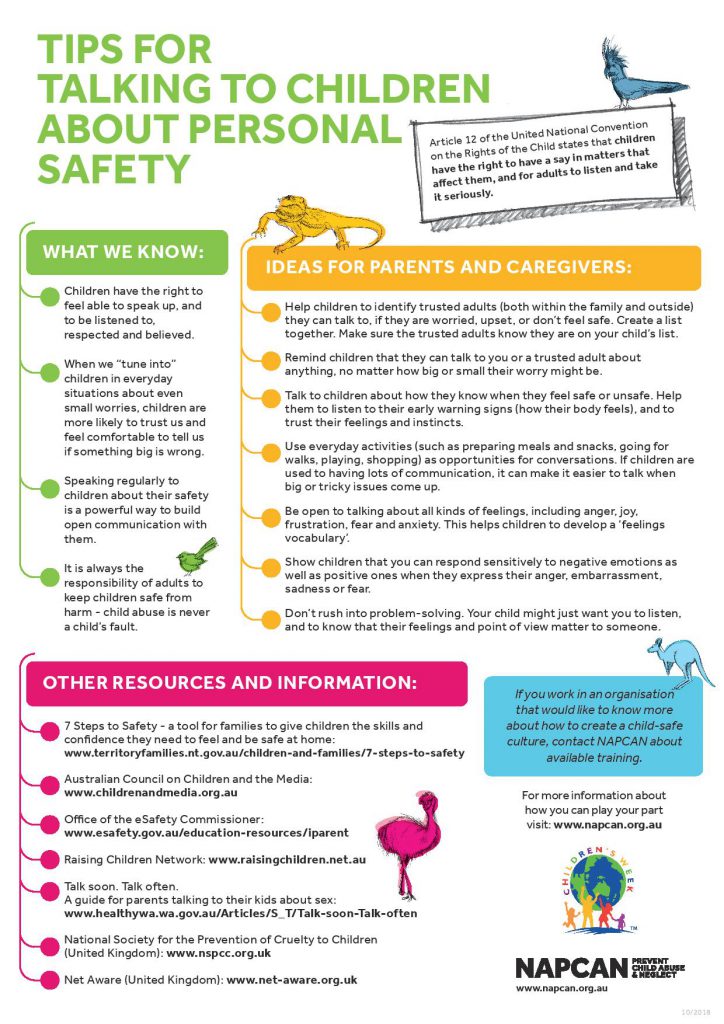Tips for talking to children about personal safety

WHAT WE KNOW:
- Children have the right to feel able to speak up, and to be listened to, respected and believed.
- When we “tune into” children in everyday situations about even small worries, children are more likely to trust us and feel comfortable to tell us if something big is wrong.
- Speaking regularly to children about their safety is a powerful way to build open communication with them.
- It is always the responsibility of adults to keep children safe from harm – child abuse is never a child’s fault.
IDEAS FOR PARENTS AND CAREGIVERS:
- Help children to identify trusted adults (both within the family and outside) they can talk to, if they are worried, upset, or don’t feel safe. Create a list together. Make sure the trusted adults know they are on your child’s list.
- Remind children that they can talk to you or a trusted adult about anything, no matter how big or small their worry might be.
- Talk to children about how they know when they feel safe or unsafe. Help them to listen to their early warning signs (how their body feels), and to trust their feelings and instincts.
- Use everyday activities (such as preparing meals and snacks, going for walks, playing, shopping) as opportunities for conversations. If children are used to having lots of communication, it can make it easier to talk when big or tricky issues come up.
- Be open to talking about all kinds of feelings, including anger, joy, frustration, fear and anxiety. This helps children to develop a ‘feelings vocabulary’.
- Show children that you can respond sensitively to negative emotions as well as positive ones when they express their anger, embarrassment, sadness or fear.
- Don’t rush into problem-solving. Your child might just want you to listen, and to know that their feelings and point of view matter to someone.
OTHER RESOURCES AND INFORMATION:
- 7 Steps to Safety – a tool for families to give children the skills and confidence they need to feel and be safe at home: www.territoryfamilies.nt.gov.au/children-and-families/7-steps-to-safety
- Australian Council on Children and the Media: www.childrenandmedia.org.au
- Office of the eSafety Commissioner: www.esafety.gov.au/education-resources/iparent
- Raising Children Network: www.raisingchildren.net.au
- Talk soon. Talk often.
A guide for parents talking to their kids about sex: www.healthywa.wa.gov.au/Articles/S_T/Talk-soon-Talk-often - National Society for the Prevention of Cruelty to Children (United Kingdom): www.nspcc.org.uk
- Net Aware (United Kingdom): www.net-aware.org.uk
Click the image to download PDF version.

